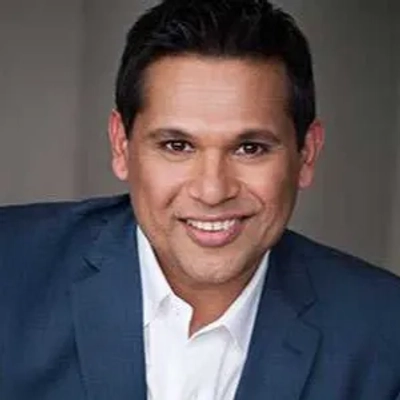18 Task Delegation Strategies to Empower Your Team
Effective delegation can transform team performance, but many leaders struggle to hand over control in ways that truly empower their people. This article brings together proven strategies from industry experts who have mastered the art of assigning work that builds capability and drives results. From aligning tasks with individual strengths to transferring real decision-making authority, these 18 approaches offer practical ways to strengthen team ownership and accountability.
- Match Responsibilities With Intrinsic Motivation
- Align Projects With Strengths and Goals
- Assign Ownership Rather Than Just Tasks
- Trust People’s Instincts Over Their Resumes
- Assign Outcomes With Complete Authority
- Give People Problems to Solve Completely
- Create Checklists Then Allow Customization
- Implement Systems That Ensure Accountability
- Create Ownership Pods for Project Outcomes
- Delegate the Problem Not the Plan
- Transfer Operational Authority for High-Risk Assets
- Explain Why It Matters and Define Success
- Encourage Decentralized Creativity Across Platforms
- Assign Decision Rights Before Assigning Tasks
- Set the Vision and Support the Team
- Divide Tasks Into Clear Technical Modules
- Use Project-Based Simulations for Team Dynamics
- Trust Others to Lead and Shine
Match Responsibilities With Intrinsic Motivation
One effective strategy I’ve used to delegate tasks and empower my team is to match responsibilities with each person’s intrinsic motivation rather than just their skill set. When someone is passionate about a particular area—be it patient engagement, community outreach, or digital health education—they naturally take ownership. During the early stages of my “Ask Dr. Nandi” show, I delegated the social media engagement strategy to a team member who was deeply interested in health communication. Instead of prescribing every detail, I shared the broader vision and gave her the freedom to experiment. Within months, our online engagement doubled because she felt trusted to innovate.
The key lesson was that empowerment requires both trust and boundaries. I set clear outcomes but allowed space for creativity in execution. By checking in through collaborative discussions instead of top-down reviews, the team developed stronger problem-solving instincts and confidence. That experience reinforced my belief that true delegation isn’t about offloading tasks—it’s about transferring ownership in a way that elevates both the individual and the mission.

Align Projects With Strengths and Goals
One of the most effective strategies to empower my team is aligning a project with a team member’s strengths and professional goals, and giving them full ownership of the outcome. When we needed to overhaul a client’s SEO content strategy for a national law firm, I identified a team member who had shown initiative in content optimization and was passionate about analytics.
I clearly outlined the objectives, the results we needed, and the client’s expectations, then gave her the latitude to build the process from research, to collaboration with writers, to measuring impact.
We held one strategy session to clarify the vision and address any questions, then I backed off and indicated she was the project lead. This empowered her to make decisions and coordinate with other departments. The result was a dramatic increase in organic leads for the client and a stronger sense of ownership and confidence in her abilities. She’s become a go-to resource for integrated content strategies and mentors newer team members.
Empowering your team means resisting the urge to micromanage and trusting them to rise to the challenge. You get better results and help your people grow into leadership roles themselves. That’s a win for the team and the clients we serve.

Assign Ownership Rather Than Just Tasks
One strategy that’s worked well for me is assigning ownership, not just tasks. I learned early on that people don’t feel empowered when they’re simply executing—they grow when they’re accountable for an outcome. A great example was when we expanded our production partnerships. I handed over the supplier evaluation process to a team member who had a strong background in operations but hadn’t yet taken on a leadership role. Instead of micromanaging, I asked her to design her own vetting criteria and present recommendations. The results were stronger supplier relationships and a newfound confidence that rippled across our team.
Delegation, to me, is less about efficiency and more about trust. Giving someone the space to think, decide, and even make small mistakes can reveal their potential in ways structured training never could. The truth is, people rise to the level of responsibility they’re given, as long as they know their judgment is valued. That’s where real empowerment lives—somewhere between guidance and independence.

Trust People’s Instincts Over Their Resumes
After 40 years in PR working with everyone from Andy Warhol’s Interview magazine to royal families, I’ve learned that successful delegation means trusting people’s instincts over their resumes. When covering high-stakes galas and cultural events for my columns, I don’t micromanage my research team–I give them the scene to investigate and let them surprise me with the angles.
The best example was during coverage of a major philanthropic event where tensions ran high between competing socialites. Instead of dictating every detail, I told my assistant which five people to watch and asked what stories they *felt* brewing. They caught a reconciliation moment between two formerly feuding patrons that became the most-read piece that month–something I would have missed because I was fixated on the obvious celebrity drama.
In crisis management work, I apply the same principle: brief people on the stakes and boundaries, then get out of their way. One time during a reputation crisis for an arts client, my junior strategist proposed an unconventional media approach I initially doubted. I let them run with it anyway, staying available for advice but not approval. The result exceeded our goals because they understood the current media landscape better than I did.
The trick is asking “What do you see that I’m missing?” instead of “Did you do what I told you?” People protect what they create themselves.

Assign Outcomes With Complete Authority
I built Amazon’s Loss Prevention program from the ground up, and the delegation breakthrough came when I stopped assigning tasks and started assigning **outcomes with full authority**. Instead of telling teams “investigate these theft patterns,” I gave them ownership of entire security zones and said “reduce shrink by 15% using whatever methods you determine are best.”
The game-changer was removing myself from the approval chain entirely. One team in our fulfillment network noticed unusual patterns in damaged inventory reports–they built their own cross-referencing system between security footage timestamps and damage claims without waiting for my sign-off. They caught an organized theft ring that had cost us over $200K, and I found out *after* they’d already coordinated with law enforcement.
At McAfee Institute, I use the same approach with our certification program developers. When we needed to modernize our OSINT training, I didn’t dictate the curriculum–I gave our former FBI and Secret Service instructors the performance metric (student career advancement within 6 months) and told them to build whatever program hit that number. They created something far better than I would have designed because they owned the entire result, not just their piece of it.
The real key: I track one metric per person–their ultimate outcome–and literally nothing else. No status meetings about progress, no draft reviews, no “what are you working on” check-ins. When you hire pros and give them actual authority, micromanagement becomes the enemy of results.

Give People Problems to Solve Completely
After 20+ years in IT, I’ve learned that the best delegation happens when you give people problems to solve, not just tickets to close. We stopped managing individual tech issues and started assigning entire client relationships. Each team member now owns 8-12 businesses completely—from security planning to daily helpdesk calls.
The breakthrough came when I pulled myself out of our cybersecurity assessments. I used to review every firewall config and security recommendation before it went to clients. Last year I handed our biggest retail client to Sarah, who’d been shadowing these assessments. She identified a Wi-Fi vulnerability I’d been missing for months and built a training program that cut their phishing incidents by 40%. Her solution was better because she wasn’t following my playbook.
The real test was staying out of their Slack channels. I had to mute notifications and resist jumping in when I saw a complex cloud migration question. Our team’s troubleshooting speed actually improved 30% once they stopped waiting for my input. They started collaborating with each other instead of escalating to me.
What sealed it: client retention hit 94% this year versus 78% before we switched to relationship ownership. Clients now have “their person” at ProLink who knows their business inside-out, not just whoever picks up the phone.
Create Checklists Then Allow Customization
The most effective delegation strategy I use at So Clean of Woburn is creating detailed checklists for every cleaning task, then letting team members customize the order and methods based on what they find works best. When we landed our first high-rise apartment building contract, I assigned one of our newer team members full ownership of the common area cleaning schedule–she’d been consistently finishing her residential jobs 20 minutes faster than everyone else.
I gave her the framework: hallways twice weekly, lobby daily, trash chutes every morning. But she had complete authority to adjust timing, cleaning products, and techniques. Within three weeks, she’d reorganized the schedule to tackle high-traffic areas during off-peak resident hours, cutting complaints by more than half and actually reducing our labor hours by 15%.
The breakthrough was making her responsible for resident communication too. She started posting cleaning schedules in elevators and sending weekly emails to property management. Residents began thanking us directly because they knew exactly when to expect us, and she caught maintenance issues (leaky faucets, broken lights) before they became tenant complaints.
Now every team member owns at least one account completely. I only step in when they specifically ask for help solving a problem or need approval for major changes. Our staff turnover dropped significantly because people actually care about their buildings instead of just checking boxes on my to-do list.

Implement Systems That Ensure Accountability
I’ve run 12 Stones Roofing for over a decade, and I learned early that delegation only works when you put systems in place that make people accountable without needing you to babysit every decision.
The game-changer for us was creating our Installation Verification System. Instead of me inspecting every job myself, I trained crew leads to use a specific checklist covering flashing, ventilation, debris removal, and photo documentation at each phase. They sign off on it, and it goes straight to the homeowner. When something’s wrong, their name is on it—not just mine. That shift from “Jason checks everything” to “crew leads own quality” cut our callback rate by about 40% in the first year and freed me up to handle estimates and insurance claims where I actually add more value.
The crews started catching issues I would’ve missed because they were closer to the work. One lead noticed we were losing time repositioning equipment on multi-story jobs, so he redesigned our staging process without asking permission. Saved us half a day on bigger projects. I never would’ve thought of it sitting in the office.
My advice: pick one repeatable process, document exactly what success looks like, then hand someone the authority to execute and improve it. If they screw up, the system catches it before the customer does. If they innovate, you just got better without lifting a finger.
Create Ownership Pods for Project Outcomes
At HYPD Sports, one strategy that truly changed team performance was creating “ownership pods”—small groups where each member had full responsibility for a specific project outcome rather than just individual tasks. During a major product launch, the marketing pod was given full control over campaign planning, content, and execution, while leadership only set clear goals and timelines. This trust-driven approach encouraged creativity and accountability. The result was a 42% faster campaign rollout and a 35% higher engagement rate compared to previous launches. The key insight was that people perform best when they feel their ideas matter and their decisions have real impact. Delegation isn’t just about dividing work—it’s about transferring confidence and authority. When teams are trusted to make choices, they rise to the challenge, and the business grows stronger together.

Delegate the Problem Not the Plan
In an era of distributed teams and relentless change, the ability to delegate effectively has become less about managerial efficiency and more about organizational resilience. When leaders become bottlenecks, decision-making stalls and team engagement withers. The real challenge isn’t just offloading tasks; it’s cultivating a team’s capacity to operate with autonomy and ownership, ensuring the work continues intelligently even when you aren’t in the room. This shift from directing to empowering is no longer a soft skill but a critical component of sustainable leadership.
My most effective strategy has been to delegate the problem, not the plan. Early in my career, I would hand off a task with a detailed list of instructions, essentially asking a team member to execute my solution. This approach minimized risk but also stifled creativity and accountability. I learned to reframe my delegations by clearly defining the desired outcome, the immovable constraints (like budget or deadline), and the metrics for success. Then, I would explicitly state that the path to achieving that outcome was theirs to design. This small shift reframes the act of delegation from “do this” to “solve this,” immediately transferring ownership and inviting ingenuity.
I once asked a junior team member to improve our client onboarding process, which was cumbersome and manual. Instead of mapping out a new workflow for her to build, I gave her the objective: “Reduce the time a client spends on paperwork by 50% within the next quarter, without compromising our legal or compliance needs.” I made it clear that the tools, the communication methods, and the specific steps were her domain to research and propose. She not only met the goal but did so by implementing a simple automation tool I had overlooked, creating a solution far more elegant than my prescriptive plan would have been.
The experience taught me that true empowerment isn’t about giving people permission to follow your instructions. It is about creating a framework of trust and clarity that gives them permission to think. The leader’s role shifts from providing answers to defining the space in which the team can find their own.

Transfer Operational Authority for High-Risk Assets
The most effective strategy we use to delegate and empower is the Operational Authority Transfer on High-Risk Assets. We don’t delegate busywork; we delegate the full financial and logistical risk of a critical operation.
The core principle is: you empower a team member by giving them accountability for the highest-value task, specifically the final quality check on a turbocharger assembly destined for a heavy-duty truck fleet.
A successful delegation example involved the entire process of transitioning from Texas to local same-day pickup at our Dallas facility. I delegated to the lead technician the absolute operational authority to develop and enforce the final OEM quality verification matrix for all parts—including OEM Cummins actuators. His signature was the final sign-off, which ties directly into our 12-month warranty guarantee.
This saved me resources because it quarantined all final QC risk under one expert, rather than diluting it across a managerial chain. It empowered him by making his judgment the non-negotiable standard for our brand’s promise. The ultimate lesson is: delegation is a transfer of operational integrity, not just a transfer of work.

Explain Why It Matters and Define Success
One strategy that’s worked well for me is delegating outcomes, not instructions. Instead of telling a team member how to do something, I explain why it matters and what success should look like. For example, when we rolled out a new candidate tracking system, I gave one recruiter full ownership of testing and improving it.
They came back not only with a better setup but also with new automation ideas that cut our processing time by almost half. That experience reinforced something I’ve always believed: people take real ownership when they feel trusted to shape the result, not just execute a task.

Encourage Decentralized Creativity Across Platforms
One successful strategy in digital marketing is encouraging decentralized creativity. I once delegated full control of a cross-platform campaign to a small three-member team. They managed messaging across paid, organic and social channels with minimal supervision. This freedom allowed them to explore new ideas, test variations and align strategies that resonated deeply with our audience.
The results exceeded expectations, achieving record engagement and stronger audience retention. Their ownership of the process built confidence and inspired collaboration across other teams. It proved that when professionals are trusted with responsibility, they deliver beyond expectations. When empowerment is paired with accountability, it can transform a campaign from well-planned to truly impactful.

Assign Decision Rights Before Assigning Tasks
One thing I might suggest is to assign decision rights before tasks. So instead of giving someone a project, give them the autonomy to decide what success looks like, within a set of guardrails. That means having the 10% of the must-haves (timeline, budget, or compliance, for example) and letting them own the other 90%. It seems like most teams lose 50% of their momentum waiting for permission or overthinking the boundaries. When someone knows exactly what they can decide, you get both speed and accountability.
Honestly, the most productive teams I’ve worked with are not necessarily the most trusted because they’re already over-trusted in the right way. You just give them a lane and a destination, then get out of the way. I’d bet that’s where true empowerment comes from—not from motivational speeches, but from the transferring of power. Plus, once people are trusted with decisions that have actual impact, they not only work harder but they think harder. That’s about it.

Set the Vision and Support the Team
Delegation, for me, starts with trust. When you have the right team, you don’t need to control every move; you set the vision and support people to get there.
At Franzy, we give people ownership early. When they have full context and the authority to make decisions, progress happens naturally. It’s how we’ve continued to grow while keeping the same mindset that defined us from day one.

Divide Tasks Into Clear Technical Modules
I always divide tasks into separate modules that are easy to understand and full of responsibilities, and I always let people make their own technical decisions within their areas. Typically, during a recent project in the category of an audio plugin, I transferred the whole UI layer to a colleague, and I concentrated on DSP issues. We reached a consensus on the data model and communication layer at the very first stage, and then I stood back. The person produced a flawlessly designed interface, suggested a few user experience enhancements that had not even crossed my mind, and the whole integration process was smooth because they took it as their own part of the product. It excited the team quite a bit and made them work faster and more confidently.

Use Project-Based Simulations for Team Dynamics
There’s no better way of understanding soft skills than through project-based simulations that emulate real team dynamics. Rather than asking the interviewee a set of questions, the candidate is engaged in a short, problem-solving exercise with several members of the existing team. This method shows how they communicate, take feedback, and adapt under pressure—all qualities that traditional interviews can miss. It lets you see a more genuine picture of a candidate’s interpersonal strengths and their ability to contribute to team culture.

Trust Others to Lead and Shine
Delegation isn’t about doing less; it’s about making space for others to shine. When we upgraded our presentation to reflect our evolved brand, I trusted our writer to take the lead on the content, brought in design support to elevate the visuals, and collaborated on the finishing touches to make it truly wow.










































